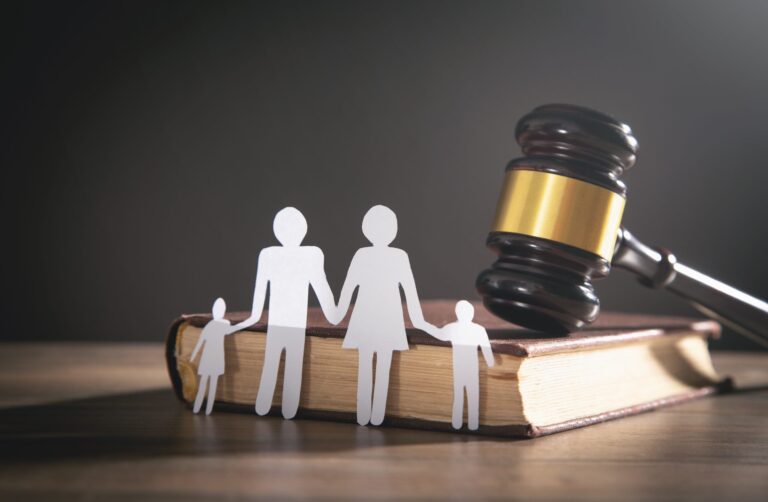Call us now:
Divorce is a challenging and emotionally taxing process that can be overwhelming without proper guidance. Best family lawyers provide invaluable assistance, ensuring that you navigate through the legal intricacies with clarity and confidence. This comprehensive guide offers essential tips to help you manage divorce proceedings effectively.
Key Considerations During Divorce
Custody and Visitation
One of the most contentious aspects of divorce is child custody and visitation. It is essential to prioritize the best interests of the children. Best family lawyers recommend developing a parenting plan that outlines custody arrangements, visitation schedules, and how decisions regarding the children will be made.
Division of Assets
Equitable distribution of assets is another critical area. This involves identifying and valuing marital property, including real estate, investments, and personal belongings. Your lawyer will help negotiate a fair division, considering factors like the length of the marriage, contributions of each spouse, and future financial needs.
Spousal Support
Spousal support, or alimony, may be awarded to ensure that the lower-earning spouse maintains a reasonable standard of living. Factors influencing spousal support include the length of the marriage, the earning capacity of each spouse, and their respective financial needs. A family lawyer will advocate for a fair arrangement.
Child Support
Child support is calculated based on state guidelines, which consider the income of both parents and the needs of the children. It ensures that the children’s financial needs are met post-divorce. Your lawyer will help ensure that child support calculations are accurate and reflect the true financial circumstances.
Understanding the Divorce Process
The Initial Consultation
The first step in the divorce process is consulting with a knowledgeable family lawyer. During this meeting, you will discuss your situation, and the lawyer will outline your legal options and the steps involved in filing for divorce. This initial consultation is crucial as it sets the stage for your entire case.
Filing for Divorce
Once you decide to proceed, your lawyer will help you file a divorce petition. This document outlines the grounds for divorce and initiates the legal process. It is important to understand the requirements in your jurisdiction, as these can vary. Your family lawyer will ensure that all necessary paperwork is correctly completed and submitted. Learn more how do I apply for divorce?
Serving Divorce Papers
After filing, the divorce papers must be served to your spouse. This legal notification informs them of the proceedings and gives them the opportunity to respond. Your lawyer will guide you through the appropriate method of service, which can include personal delivery, mail, or through a process server.
Response from the Spouse
Your spouse will have a specific period to respond to the divorce petition. They can either agree to the terms or contest them. The response will determine the course of the proceedings, whether it moves towards a settlement or requires litigation.

Tips from Best Family Lawyers
Stay Organized
Divorce involves extensive documentation. Keeping detailed records of financial transactions, communications, and legal documents is vital. Create a dedicated file or digital folder to store everything related to the divorce. This organization will help your lawyer build a strong case and provide you with a clear understanding of your situation.
Communicate Effectively
Effective communication with your lawyer is essential. Be honest and forthcoming with all relevant information, as withholding details can adversely affect your case. Regularly update your lawyer on any changes in your circumstances and respond promptly to their inquiries.
Focus on the Big Picture
Divorce can be emotionally charged, and it’s easy to get bogged down in minor disputes. Best family lawyers advise focusing on the big picture and long-term goals. Prioritize the well-being of your children and aim for a fair settlement that allows you to move forward positively.
Consider Mediation
Mediation is an alternative dispute resolution method that can save time, money, and stress. A neutral mediator helps both parties reach a mutually agreeable settlement. Family lawyers often recommend mediation as it encourages cooperation and reduces the adversarial nature of divorce proceedings.
Protect Your Finances
Divorce has significant financial implications. Close joint accounts, establish individual credit, and create a budget to manage expenses. Work with your lawyer to identify hidden assets and ensure a fair distribution. Protecting your financial future is crucial during and after the divorce process.
Common Challenges and How to Overcome Them
Emotional Strain
Divorce is emotionally draining. Seeking support from friends, family, or a therapist can help you manage stress and maintain your mental health. Remember, your lawyer is also there to support you, providing guidance and reassurance throughout the process.
Co-Parenting Conflicts
Co-parenting can be challenging, especially in high-conflict divorces. Developing a detailed parenting plan and maintaining open communication with your ex-spouse is vital. Utilize tools like shared calendars and parenting apps to facilitate coordination and reduce misunderstandings.
Legal Complexities
Divorce laws can be complex and vary by state. Rely on your lawyer’s expertise to navigate these complexities. They will ensure that you understand your rights and obligations, helping you make informed decisions.
Financial Uncertainty
Financial uncertainty is common during divorce. Work with your lawyer to develop a clear financial strategy, including budgeting, asset management, and planning for future expenses. This proactive approach will help you achieve financial stability post-divorce.

Moving Forward After Divorce
Establishing New Goals
Post-divorce life offers an opportunity to set new goals and create a fresh start. Whether it’s focusing on your career, pursuing new hobbies, or spending quality time with your children, setting positive goals will help you move forward with purpose.
Building a Support Network
Surround yourself with supportive friends and family. Joining support groups or engaging in community activities can provide a sense of belonging and help you navigate the transition. Lean on your support network for encouragement and guidance.
Legal Follow-Up
Even after the divorce is finalized, there may be ongoing legal matters such as enforcing custody agreements or modifying support payments. Stay in touch with your lawyer to address any post-divorce issues promptly.
Self-Care
Prioritizing self-care is essential. Engage in activities that bring you joy and relaxation. Regular exercise, healthy eating, and mindfulness practices can improve your physical and emotional well-being, helping you cope with the challenges of post-divorce life.
Conclusion
Navigating divorce proceedings requires careful planning, emotional resilience, and expert legal guidance. By understanding the process, prioritizing key considerations, and following the advice of experienced family lawyers, you can achieve a fair and positive outcome. Remember, this journey is not just about ending a marriage but about building a brighter future for yourself and your family.



